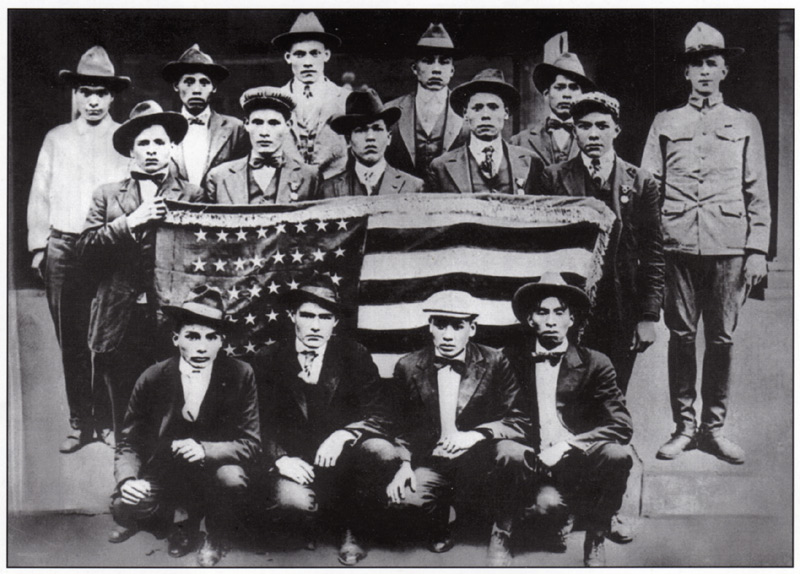Last Updated on March 18, 2025 by Bertrand Clarke
In a move sparking controversy, several articles honoring the contributions of the Navajo Code Talkers have disappeared from U.S. military websites. The removals coincide with the recent elimination of diversity, equity, and inclusion (DEI) initiatives under an executive order issued by President Trump.
A Legacy Under Scrutiny
The Navajo Code Talkers played a crucial role during World War II, using their complex Diné language to create an unbreakable code that was pivotal in securing Allied victories. From 1942 to 1945, these Native American Marines transmitted thousands of secure messages, notably aiding in the success of the Iwo Jima campaign. Their contributions are widely recognized as one of the key factors in the Pacific Theater.
Yet, as of this week, at least ten articles detailing their achievements have been removed from U.S. Army and Department of Defense (DOD) websites. The missing pages were previously accessible as recently as late last year but are now either broken links or marked with “DEI” in the URLs, raising concerns that they were removed in compliance with the new policy directives.
Behind the Disappearances
The removal of the Code Talkers’ pages aligns with the implementation of Trump’s executive order aimed at dismantling DEI-related content in federal agencies, including the military. The policy change was framed as an effort to eliminate material deemed divisive or unnecessary to the core mission of national defense.
Pentagon Press Secretary John Ullyot defended the decision, stating, “As Secretary [Pete] Hegseth has reiterated, DEI is no longer a focus for the Department of Defense. Our priority is ensuring military readiness and unity. In rare cases where content is removed inappropriately, we address it accordingly.”
However, the statement did not clarify whether the Code Talkers’ legacy was considered part of the “DEI” content targeted by the new policy.
Broader Impact on Military History
The removal of these pages is part of a broader trend affecting historical tributes on military websites. Reports indicate that references to Indigenous American service members have also been erased, including those honoring Meskwaki Code Talkers, who served in North Africa, and Comanche troops who devised creative battlefield terminology during World War II.
Additionally, mentions of Native American women who served in combat and as medics, as well as high-ranking Indigenous officers, have disappeared from military archives. The DOD website no longer returns results for “Meskwaki,” and similar erasures have been noted for contributions made by Black, Latino, and female service members.
A Pattern of Erasure?
Military historians and advocacy groups have voiced concerns over what appears to be a systemic deletion of references to minority contributions within the armed forces. The removals extend beyond Native American figures, impacting historical units such as the Harlem Hellfighters, the Japanese-American 442nd Infantry Regiment, and the Women Airforce Service Pilots (WASPs) of World War II.
Utah Lt. Gov. Deidre Henderson recently requested that the Army restore a tribute to Seraph Young, the first woman to vote in the U.S., after her name vanished from Arlington National Cemetery’s website. In another case, a page about Major Gen. Charles Rogers, a Black Medal of Honor recipient, was altered in a way that appeared to mock his achievement by changing “medal” to “deimedal” in the URL. Following public outcry, that page was restored.
The Code Talkers’ Enduring Importance
Despite these removals, the legacy of the Navajo Code Talkers remains a source of pride for many Americans. Their ingenuity in developing an undecipherable code helped safeguard countless lives and secured crucial victories. Ironically, the success of their mission was rooted in the diversity of the military—Native American languages, once suppressed by U.S. policies, became essential tools of war.
Indigenous Americans have historically enlisted in the U.S. military at rates significantly higher than the national average. In 2018, President Trump himself acknowledged their service in a proclamation that has since disappeared from government websites.
Looking Ahead
While the U.S. Marine Corps—the branch that trained and deployed the Navajo Code Talkers—has yet to remove its content honoring them, the broader trend of military history disappearing from official records raises questions about how history will be preserved moving forward.
Advocates urge the Defense Department to reconsider these removals, emphasizing that celebrating diversity in military history does not weaken unity but strengthens it by acknowledging the full scope of American contributions to national security. As one historian put it, “The military is built on the bravery of all who serve. Erasing any part of that history does a disservice to the sacrifices made.”
For now, the Navajo Code Talkers’ story endures in books, museums, and the memories of those who honor their legacy—but whether it remains officially recognized by the U.S. military is an open question.










